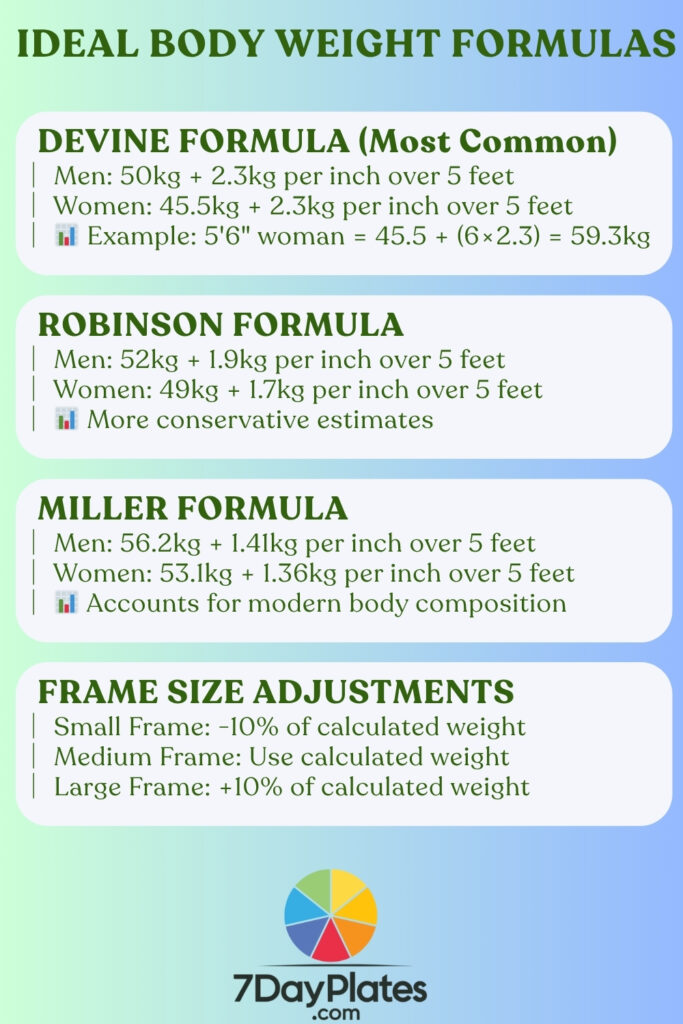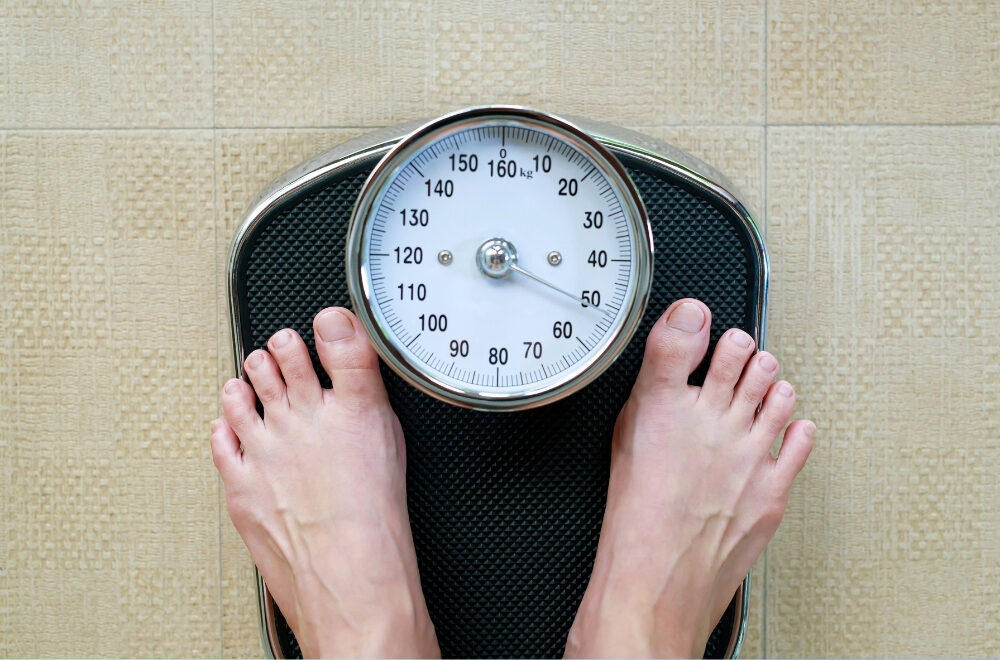Finding your ideal body weight isn’t about achieving a magazine-perfect physique – it’s about discovering the weight range where your body functions optimally and you feel your best. Unlike restrictive beauty standards, ideal body weight is based on scientific formulas that consider your height, gender, and body frame to promote long-term health and wellness.
What is Ideal Body Weight?
Ideal body weight represents the weight range associated with the lowest risk of weight-related health problems and optimal physical function. Healthcare professionals use these calculations to set realistic weight goals, determine medication dosages, and assess overall health risks.
Unlike BMI, which only considers height and weight, ideal body weight calculations account for gender differences and can be adjusted for body frame size, making them more personalized and accurate for individual health planning.
Popular Ideal Body Weight Formulas
Ideal Body Weight Calculation Methods
Devine Formula is the most widely used method. For a 5’6″ woman: 45.5kg + (6 inches × 2.3kg) = 59.3kg or 131 pounds.
Robinson Formula tends to give slightly lower weights, while Miller Formula reflects modern body composition changes.

Factors Affecting Your Ideal Weight
Body Frame Size: People with larger bone structures naturally weigh more. Measure your wrist circumference to determine if you have a small, medium, or large frame.
Muscle Mass: Athletes and active individuals often weigh more than their “ideal” weight due to muscle density. Muscle weighs more than fat but contributes to better health outcomes.
Age: As we age, some weight gain may be normal and even protective. Older adults with slightly higher weights often have better health outcomes than those who are underweight.
Health Conditions: Certain medical conditions, medications, or genetic factors can influence what weight is healthiest for your individual situation.
Setting Realistic Weight Goals
Rather than fixating on a single number, focus on achieving a healthy weight range. Your ideal body weight calculation provides a target, but anywhere within 10-15% of this number can be considered healthy.
Sustainable Approach:
- Aim for gradual weight changes (1-2 pounds per week)
- Focus on building healthy habits rather than just losing weight
- Consider body composition, not just the scale number
- Prioritize how you feel over how much you weigh
Beyond the Numbers
Remember that ideal body weight formulas provide estimates, not absolute targets. Your healthiest weight is one where you:
- Have energy for daily activities
- Sleep well and feel rested
- Maintain stable moods
- Have good biomarkers (blood pressure, cholesterol, blood sugar)
- Feel confident and comfortable in your body
Making It Work for You
Use ideal body weight calculations as a starting point for discussions with healthcare providers. Combined with other health assessments, these formulas can help you set realistic, achievable goals that support long-term wellness rather than short-term appearance changes.
Your ideal body weight isn’t about fitting into a specific clothing size or matching societal expectations – it’s about finding the weight where your body thrives. Focus on sustainable lifestyle changes that naturally lead you toward your healthiest weight range.
Calculate your ideal body weight and get personalized recommendations at https://7dayplates.com/

